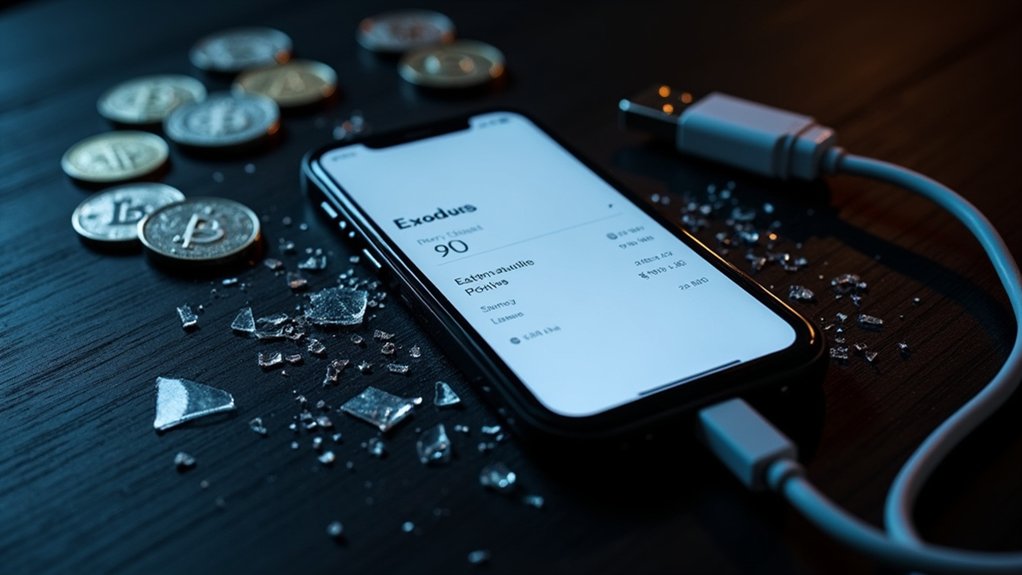While Exodus has become a popular software wallet for cryptocurrency enthusiasts, its security measures are about as robust as a screen door on a submarine. The wallet lacks basic protections like two-factor authentication and multi-signature support, leaving users’ funds protected by nothing more than a single password. Even Exodus themselves don’t recommend storing large amounts of crypto in their software—and boy, do they have a point. The platform’s commitment to self-custodial storage means users maintain complete control over their private keys.
Recent events have shown just how vulnerable these wallets can be. In April 2025, cybercriminals launched sophisticated attacks using malicious NPM packages, specifically targeting Exodus versions 25.13.3 and 25.9.2. These weren’t your garden-variety hack attempts—the attackers got creative, disguising their malware as innocent PDF converters and implementing clipboard hijackers that could silently modify wallet addresses during transactions. Unlike traditional cold storage wallets, software wallets remain constantly connected to the internet, making them more susceptible to attacks.
The threats don’t stop there. Phishing campaigns have been having a field day with Exodus users, particularly targeting Mac users with specially crafted malware. Social engineering tactics have proven devastatingly effective, with scammers posing as Exodus support staff and creating convincing fake wallet websites. While the wallet supports over 290 cryptocurrencies, this wide range of assets makes it an even more attractive target for cybercriminals. It’s like leaving your house keys under the doormat and posting a sign saying “Keys Under Mat.”
Sure, Exodus isn’t sitting idle. They’re patching vulnerabilities, conducting audits, and testing their security. But here’s the kicker: the real weakness often lies in the supply chain. ReversingLabs has noted that cryptocurrency wallets face increasing risks from compromised dependencies and third-party libraries. It’s like having the strongest front door while leaving all your windows wide open.
The aftermath of a compromise is particularly brutal. When funds vanish, they’re gone for good. No insurance, no reversals, no sympathetic customer service rep to make things right. Complete uninstallation and reinstallation might fix the software, but it won’t bring back lost coins.
In the wild west of crypto, your digital assets are only as safe as your wallet’s weakest link—and with Exodus, those links are starting to look mighty rusty.





